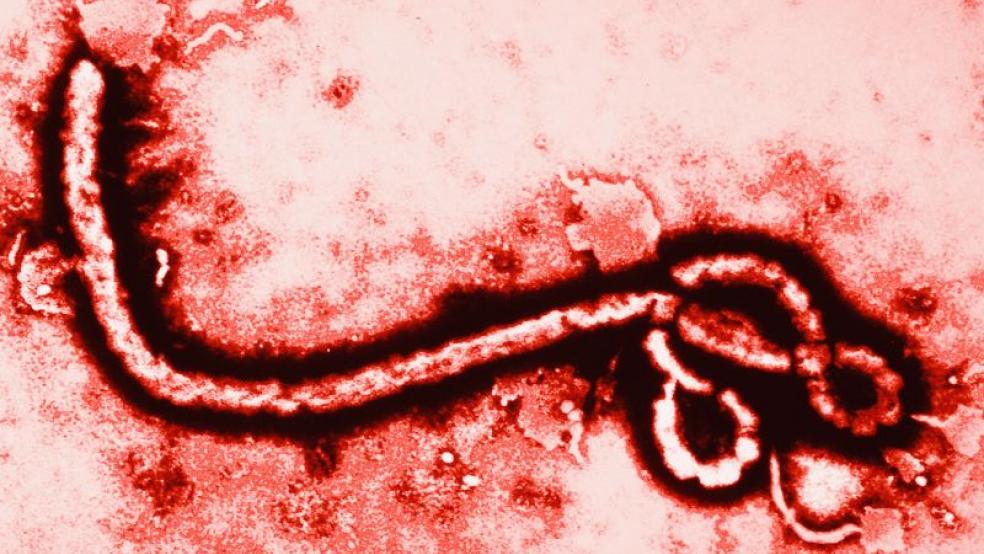From a national security standpoint, we are rightly concerned about terror organizations like ISIS. The strategic mantra is – we have to fight them over there so that we do not have to fight them here at home.
From a public health standpoint, we are rightly concerned about Ebola – and other terror organisms. That same strategy should apply – we have to fight Ebola over there, so that we do have to contend with it here, at home.
Related: Why There’s No Money for an Ebola Vaccine
Ebola is an exotic pathogen. As such, it has not been a priority for pharmaceutical R&D. As fears of a pandemic edge toward the epidemic, labs will gear up to produce what might be an effective, and safe, vaccine. But that process is a long and expensive one.
In the meantime, in addition sending protective gear, decontamination equipment, and isolation structures to the communities in Africa where the contagion rate is high, we might do well to increase efforts to stem transmission – by focusing on sanitation and hygiene, over there.
This is not a new idea – but public health ministries in several African nations have not done enough to educate rural populations about infected secretions and preventative measures; have not done enough to implement, supervise and monitor safe practices.
The Sanitation Solution
A viable and efficacious game plan was movingly discussed thirty years ago, in an essay titled “Obligations” by Dr. Lewis Thomas who explained how the spread of preventable parasitic diseases could be stemmed by relatively elemental technology.
Related: Lengthy Fight Against Ebola Expected
Thomas cited statistical evidence that, for most of those dying every day in the undeveloped and underdeveloped world, endemic health problems correlate directly to poor (or non-existent) sanitation and faulty hygiene.
Dr. Thomas said the contamination of drinking water by human feces was (and, no doubt, still is) responsible for much of the disease that could be preventable. His prescription: more sanitary engineers and more plumbers.
He proffered a cost-benefit analysis: “I believe that what is needed for the health of Third World societies is the same base of general hygiene that was put in place in America and Europe before the introduction of modern medicine. Unless this is done first, the adding on of our highly-expensive and sophisticated technologies simply cannot work.”
Given that parasitic diseases (Ebola being one of the most lethal) are the major health nemeses in much of the tropical and subtropical worlds, Thomas advocated for the establishment of local health departments in lieu of a highly-centralized bureaucratic ministry in each capital city. While acknowledging the bureaucratic and cultural obstacles, he foresaw efficacy and efficiency in “small, old-fashioned boards of health, as local and autonomous as possible, overseeing at first hand the health affairs of a county, a town, or a string of villages.”
Related: WHO Declares Ebola Epidemic A Global Emergency
To train a cadre of local professionals, Thomas called for teams of nurses, nurse practitioners, and physicians’ assistants to lay the groundwork for the sanitary engineers and plumbers.
“Counter-Terror” programs – Nurses can command
“Nurses,” he wrote, “can take on the role once played by old-fashioned family doctors in our own rural communities, and they can do some things a good deal better.” Thomas said, [Nurses] “can educate people who lack any understanding of hygiene and nutrition, they can organize systems for immunization of whole communities, and they can diagnose, or learn to diagnose, the endemic diseases of the region.”
More astutely and less politically, nurses can adapt and adopt medical breakthroughs: “When new drugs become available for the treatment or prevention of parasitic diseases, it is nurses who will be best equipped to see to it that they are properly employed in the field.”
Thomas had considerable experience with the high-end in that he held top executive posts at NYU Medical, Yale Medical School, and Memorial Sloan-Kettering Cancer Center. It was not a contradiction for him to declare that – from a cost-benefit standpoint – investment in high-end technologies would be “totally inappropriate” to the health problems that afflict tens of millions. Instead, he recommended –
- Much improved and carefully-monitored sanitation
- Decontaminated (or better still, uncontaminated) water supplies
- Antibiotics and vaccines, and a distribution system assuring access to these things throughout the population
- Access to whatever new agents turn up for treating parasitic infections
- A network of small hospitals with professional competence in primary medical care, and corps of visiting nurses to assure quality standards,
- Training programs to develop cadres of healthcare practitioners within the developing nations.
Alarm is contagious. Few of us want to think about epidemiological issues, parasitic threats – terror organisms. To spare ourselves direct encounters, it would be better to resolutely address those issues “over there” – by the transmission of information and safe practices – so that they do not have to be addressed here.
Top Reads from The Fiscal Times:
- Watergate and the Abuse of Power: A Lesson Unlearned
- The Army’s New Handgun: A Weapon for Criminals?
- How the U.S. Allowed ISIS to Form a Terrorist Army



